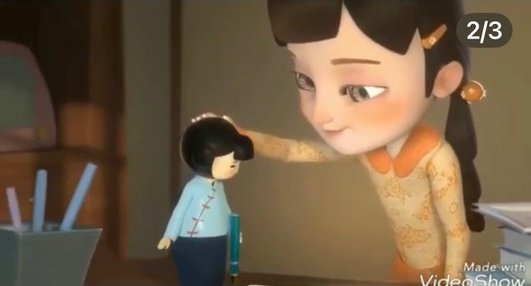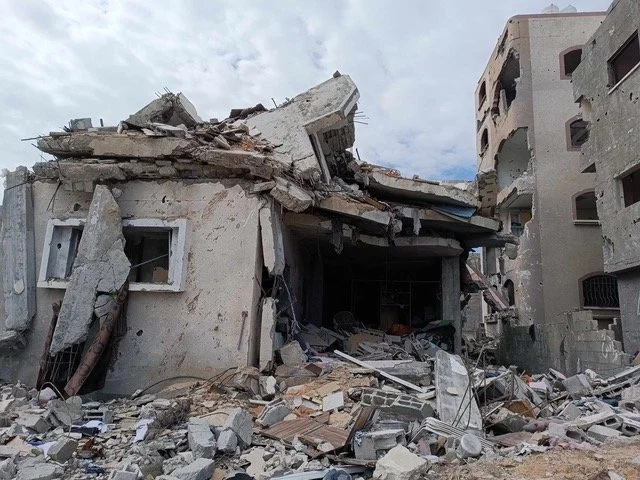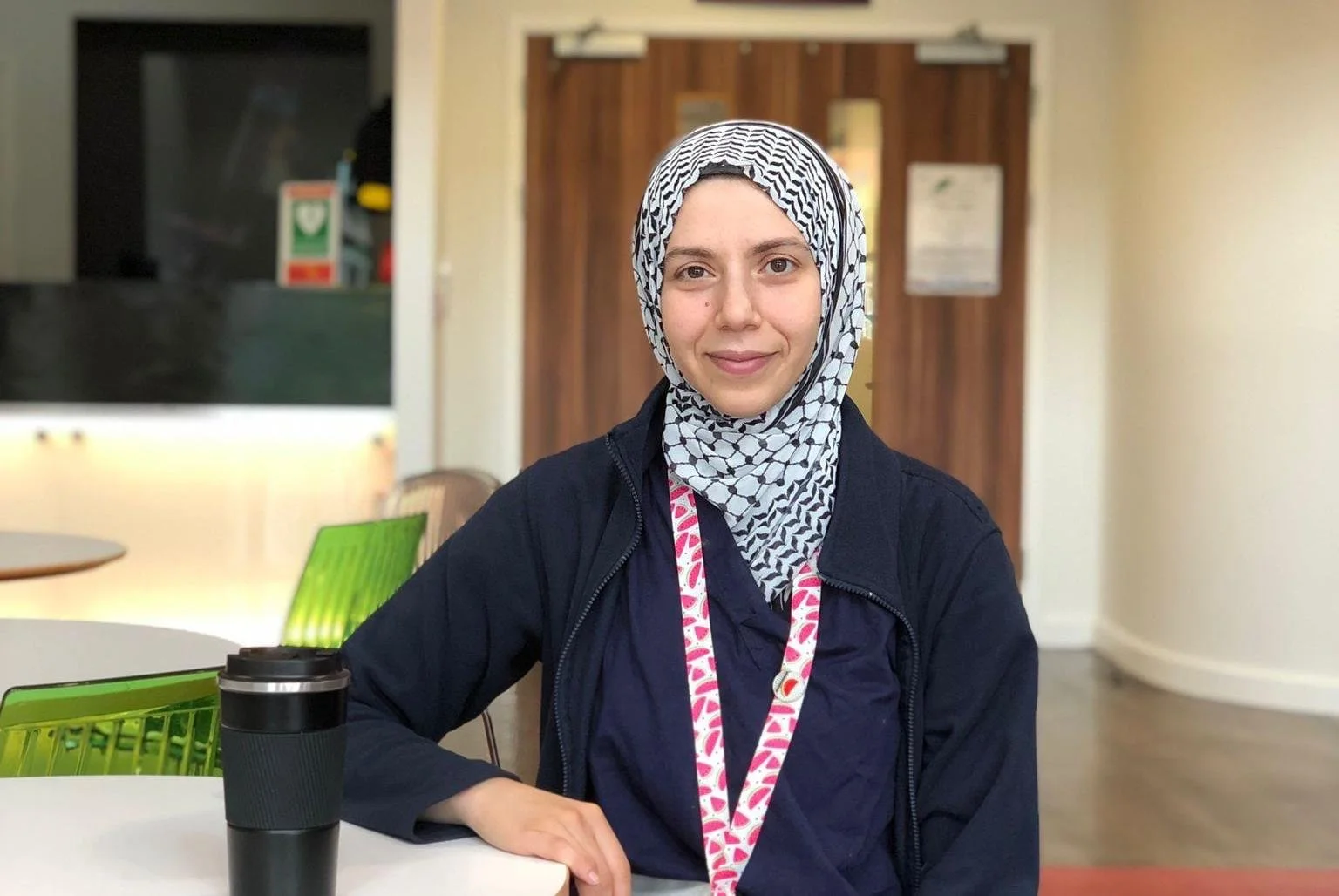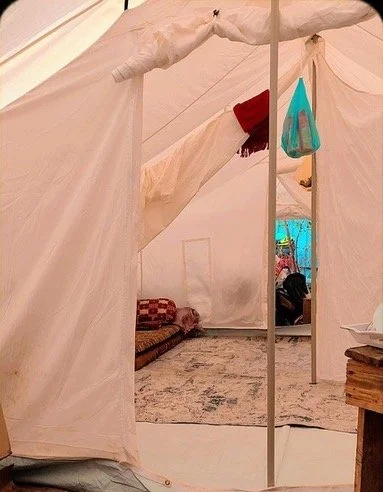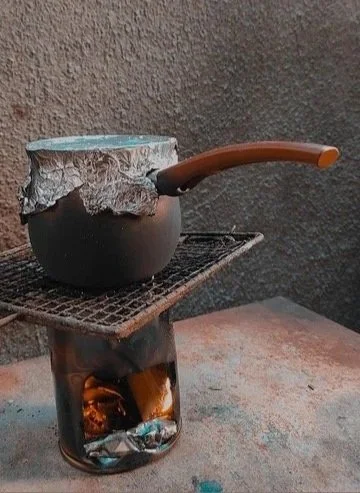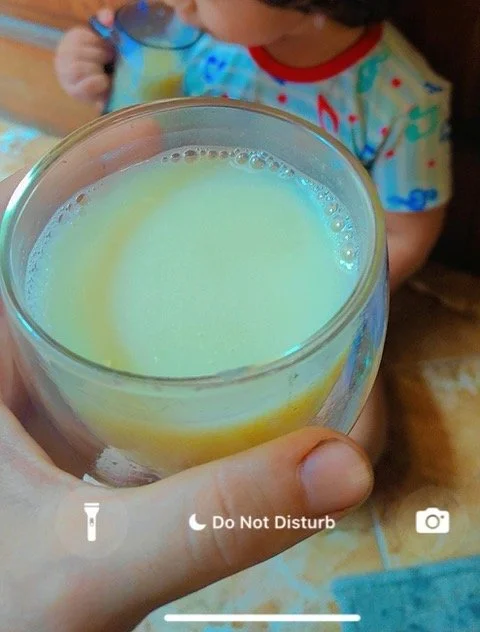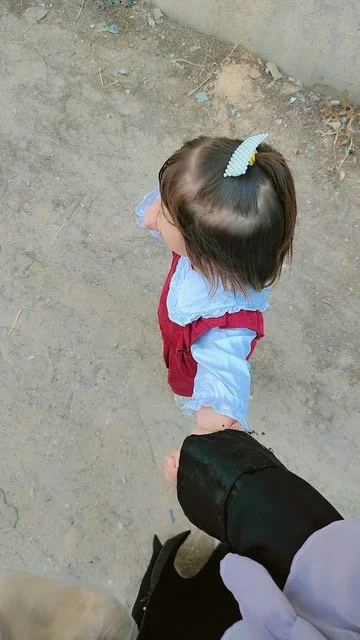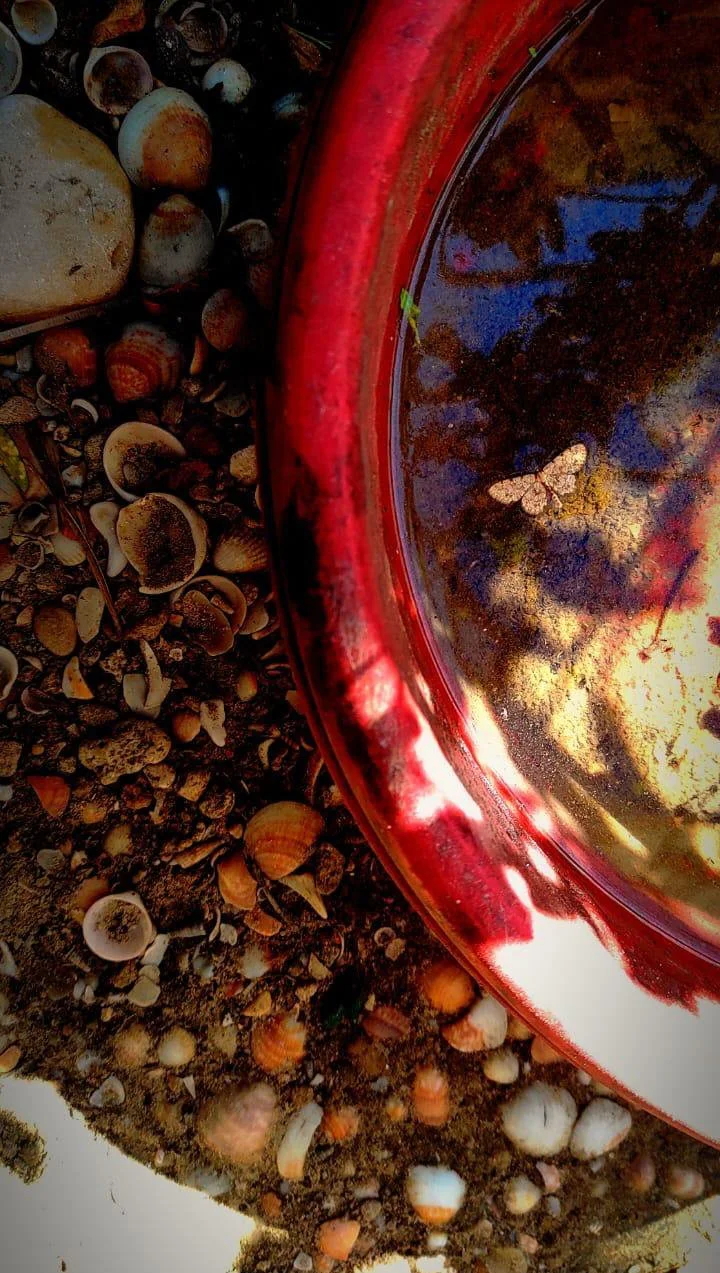The Magic Bubble that Helped a Gazan Mother keep her Children Alive
Written by Hala Saleh
*Names have been changed
Nouran is a 26 year old mother. Her first daughter, Layan, was just one week old when the war on Gaza began. Her second daughter, Jannat, was born a week into the ceasefire that lasted from January until March 2025. In the midst of a man-made famine, forced displacement and war - amounting to genocide in the opinion of many experts - Nouran experienced a rollercoaster ride in her journey of breastfeeding.
Nouran describes herself as an artist and a bit of an introvert. She remembers herself as she was before the war on Gaza, almost as if it were someone else, not her; she loved drawing, painting and upcycling empty containers. She loved the idea of saving something that would have been discarded.
Nouran wrote interior dialogues for fantasy animations: a painted bird flies into our world, a doll that deceitfully takes on the life of a human girl. In these fantasy and horror stories, boundaries that seem fixed become fluid with devastating consequences. These writings were almost prefiguring what was to happen to Nouran herself.
Nouran graduated from engineering and then became engaged, married and pregnant in quick succession. Seven days after her first daughter Layan was born, the war on Gaza started, and she was displaced from her home in the North.
“When Layan arrived I was overflowing with love, happiness, confusion, fear and anxiety about whether I could be a good mother. Then the war came, and I was displaced from the very first hour. I found myself in a room 4m x 4m that I shared with 8 people, with no privacy.
As a first-time mother I was far from my own mother who should have been my number one advisor. She was in the North, and I was in the South according to the new boundaries that were drawn.”
Life now had to be lived within the new geography. Her home before the war was destroyed and all she knew and loved before was out of reach.
Nouran’s house in the North of Gaza was completely destroyed
“My milk had completely gone”
Nouran struggled emotionally and physically; she said there were 50 people sheltering in the building where she was and when using the bathroom, she would find men often knocking on the door. The fear was overwhelming.
She recalled: “I had no private time. I suffered with fear, worry and negative thoughts that overwhelmed me; fear of losing my loved ones, of being separated from them. The milk had completely gone from my breasts. That’s when I turned to baby formula.”
Breastfeeding as survival
Nouran’s struggles with breastfeeding are familiar to women around the world, even those who are not living in a war zone. It can be hard to nurse without support, despite the evidence supporting it.
Exclusive breastfeeding is recommended in the first 6 months of life, by leading bodies, including the World Health Organisation (WHO), UNICEF and the NHS. It is proven that infants exclusively breastfed for three months or more have a reduced risk of infections, diarrhoea, leukaemia and asthma as well as longer term better health outcomes.
But exclusive breastfeeding comes into its own in a war zone, where clean water to make powdered formula and sterilise bottles is hard to find. Even more crucially perhaps, breastfeeding protects the baby from starvation in the event that baby formula becomes inaccessible, which is exactly what happened in Gaza.
During her struggles to feed her first baby Layan, Nouran could have had no idea that help was just around the corner in the shape of the Gaza Infant Nutrition Alliance.
Having started with just one midwife and one doctor in Gaza, GINA has expanded and now provides training on breastfeeding support as well as breast pumps and vitamins for thousands of mothers, helping them to avoid the dependence on baby formula in a war zone.
Dr Rula Hamad, a Palestinian/Syrian doctor in the UK and GINA volunteer
Dr Rula Hamad is a one of the experts at GINA, supporting women with lactation advice and mental health support on the many WhatsApp groups buzzing with the conversation of thousands of breastfeeding mothers in Gaza.
Telelactation, as it has been called, has been shown to be as effective as face-to-face conversations with midwives and doctors. Dr Rula explains what advice she would give mothers about finding privacy for breastfeeding, advice that Nouran would end up receiving as well. She explained:
“Finding a physical space is hard – we suggest that you can get a blanket to use as a barrier to separate off one corner of a tent so the mother feels that she has a corner to curl up in and be cocooned with her baby, or even just wrap herself up in a sheet or hide behind a pile of things inside the tent. But the most important thing is the space in the mind that the mother can create.”
This is the tent that Nouran currently lives in with her husband and two daughters
Malnourished mothers can’t breastfeed: True or False?
There is a misconception that malnourished mothers can’t breastfeed. According to the WHO they can. This is how it’s explained in a recent paper by GINA team members. It states:
“Malnutrition can indeed influence micronutrient composition of breast milk and hence deficiencies in the child (e.g. some vitamins and fatty acids), but macronutrient composition (e.g. fat, protein) remain relatively stable regardless of the mother’s dietary intake.
“In cases of mild to moderate malnutrition (lower calorie intake), many studies have found that the majority of malnourished women can maintain the quantity of milk due to the body prioritizing lactation by dipping into the mother’s nutrient reserves.”
Of course, breastfeeding is depleting the mother’s nutrient reserves so the answer is to feed the mother so she can continue breastfeeding rather than feeding the baby formula.
“Necessity knows no law”
Although malnutrition does not stop milk production, it is difficult to believe that while you are starving.
Nouran shared: “It got harder and harder to find baby formula and even hot water suitable for making the baby bottle. We have a saying that ‘Necessity breaks all taboos.’
“There was no milk and Layan kept crying from hunger so we got expired baby formula. I couldn’t even eat as I was so depressed.”
Nouran used pots and things she recovered from the rubble of her house to boil water for baby formula even if expired.
Nouran had a short reprieve when Jannat was born, and she met a member of the GINA team in a hospital. In this period, there was suddenly a pause in the war. After getting invaluable input on breastfeeding, Nouran was able to move back to be with her mother in the north. She said:
“I was following all the advice that the GINA team gave me; I was following what they were saying on the WhatsApp group. And everything was great.
“I was even using the hand pump to get extra milk that I used to feed Layan as well. So both of them were no longer dependant on the availability of formula.”
But the truce lasted only two months, and after that Nouran felt that she was back where she started.
“I felt so broken,” she recalled. “As soon as the war came back I was back to stress and not eating enough and after a full two months of breastfeeding, I was without milk again.’
Nouran was officially diagnosed as malnourished. She had started to feel hopeless. It was as if all the encouragement she had got from GINA had melted away due to the darkness of her thoughts; so she turned to GINA again to see if there was a way out.
“I messaged Dr Rula when I felt I was about to lose my breastfeeding ability. I told her I had started to suffer from malnutrition. I felt so broken inside that I was not going to be able to breastfeed for the second time.
Baby formula had all but disappeared from the market, and it was so expensive. Dr Rula told me that I had to focus on nourishing myself, and everyone on the WhatsApp group was advised to use the money we would have spent on formula on food for ourselves to protect our milk reserves. GINA even sent me a parcel of vegetables and money to buy food.”
Nouran using her own expressed breast milk to feed her daughters
“The magic bubble”
Nouran says the crucial intervention for her was the skin-to-skin technique that Dr Rula Hamad explained. As her husband stepped up to protect her private time to breastfeed – she was able to regain her flow of milk.
Dr Rula Hamad says that she advises mothers to put the babies directly on their chests.
“We encourage them to talk to their babies and imagine themselves in another time and place – they say things that really melt my heart.
“Many of them told me, I forgot about the bombing, I feel like I am in a magic bubble just me and the baby.
“They read the Quran to the baby, pray for him or her, they imagine the baby growing up.
“One of them told me “I started telling him off. I said make sure you do your homework!”
Nouran walking with Layan
Dr Hamad talks with real feeling about the bond that connects her with the mothers that she is helping everyday. The magic bubble she talks about could almost have been straight out of one of Nouran’s fantasy animations, along with the painted bird.
But bubbles, even magical ones, are so fragile. Nouran needed every ounce of her inner strength, the support of her husband and the professionals of the GINA team to get back her ability to breastfeed.
When we see the endless moonscape of devastation in Gaza, where the skyline has disappeared, it is almost a miracle to think of these legions of magic bubbles containing mothers and their babies somehow persisting and existing. But they somehow do.

